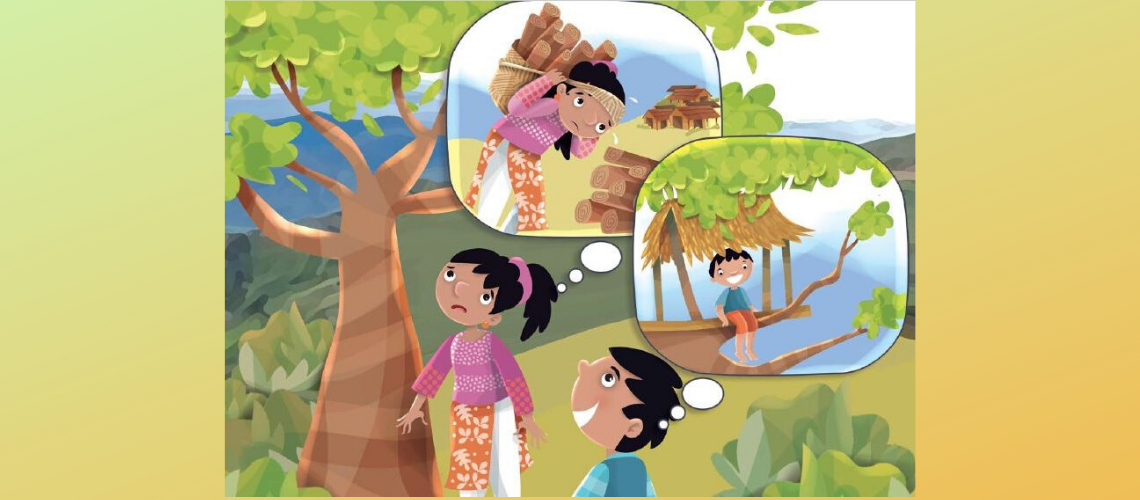 Cartoon image of two children from a World Bank calendar promoting gender equality
Cartoon image of two children from a World Bank calendar promoting gender equality
In the spirit of International Women’s Day, we are pleased to share the Gender Equality in the Energy Sector Calendar (2020–21) which uses creativity and humor to provoke greater reflection on key gender equality issues in the energy sector. Our goal was to bring to life a number of energy issues that affect women and men differently owing to their diverse roles and responsibilities in households, communities, and markets. As many of these cartoons show, the consequences of these differences can disadvantage women and leave significant room for improvement. Our hope is that by shining the light on this in a creative way, we can stimulate actions in energy interventions across data collection, project design, and policy decisions that will pave the way for a better future for women and girls around the world.
For example, in April we point to women walking out of their offices early given that pay gaps remain at the workplace as emphasized by the UN Sustainable Development Goal (SDG) 8.5, which calls for “equal pay for work of equal value.” This not only devalues women’s contributions and reduces lifetime earnings and engagement, which can impact their families and communities; it also costs energy companies and utilities in terms of performance, retention, and reputation.
In June, we point to the link between access to reliable energy and healthcare services, including good-quality maternal care and safe childbirth. A 2013 study in Sub-Saharan Africa found that 26% of the health facilities surveyed were without electricity ; and among those with access, only 28% had a reliable power supply while most experienced frequent blackouts. Round-the-clock electricity should be available to supply power for child delivery and emergency night-time care, as well as medical devices, including sterilization and obstetric equipment and refrigerators for blood and vaccine storage.
Another issue is the provision of street lighting in public spaces. In January, we highlight how street lighting in public spaces plays a key role in reducing violence and other crimes and creating an improved perception of safety. It can also increase women’s economic and social engagement and mobility, benefiting women, families, and communities.
By integrating a focus on gender equality into energy operations, knowledge development, and technical assistance, the World Bank Group (WBG) is employing a variety of means to empower men and women equitably as energy users and providers of energy services. In addition, the World Bank’s Energy Sector Management Assistance Program (ESMAP) Gender program has played an important role in moving gender issues beyond advocacy to influencing project design, on-the-ground actions, and the generation of tangible results.
Aligned with the WBG Gender Strategy, the program works with countries to design interventions and generate crucial knowledge of actions needed to close gender gaps in the sector and improve development outcomes. A focus on gender has now become integrated across ESMAP’s other areas of work such as geothermal energy, mini-grids, energy efficiency and behavior change, and clean cooking. All six regional programs in gender and energy have been established to enable the World Bank to respond to region-specific gender issues and focus on new areas, such as women in energy leadership and gender-based violence (GBV).
We believe that no country, community, or economy can achieve its potential or meet the challenges of the 21st century without the full and equal participation of women and men, girls and boys . Toward this goal, the WBG continues to scale-up efforts and drive innovation forward on gender equality work with clients to close gender gaps globally. Such actions can ensure progress on closing gaps between women and men and providing energy services for all.
We extend our very special thanks to the talented artists from around the world who helped craft these visual messages and wish you all a successful year ahead!
Subscribe here to stay up to date with the latest Energy blogs.



Join the Conversation